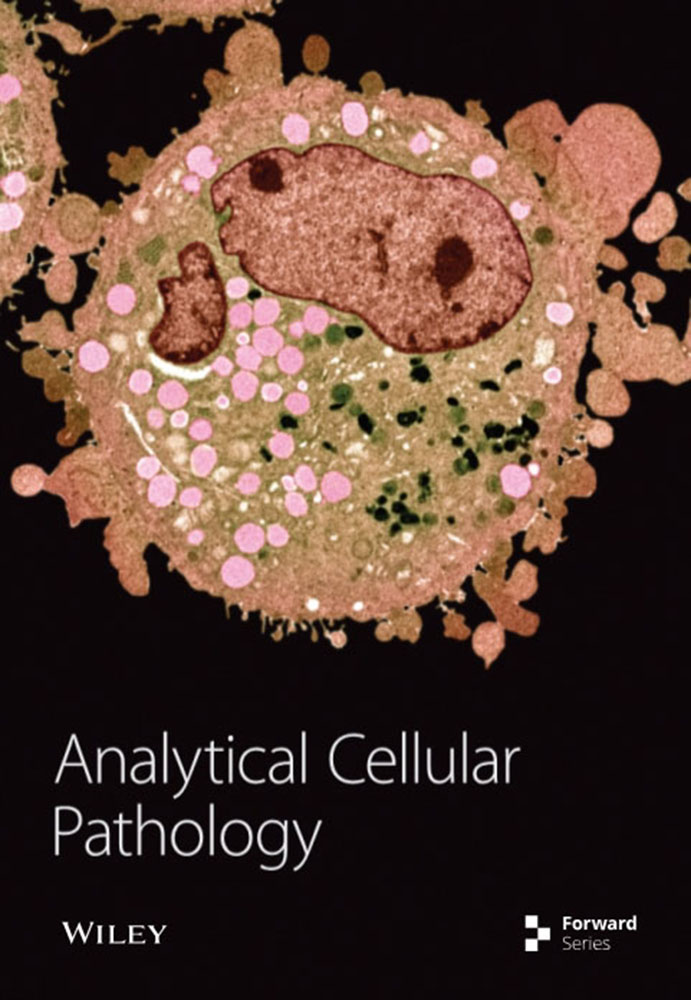Inhibitory Effect of β-Sitosterol on the Ang II-Induced Proliferation of A7r5 Aortic Smooth Muscle Cells
IF 2.7
4区 医学
Q3 CELL BIOLOGY
引用次数: 0
Abstract
Context. Excessive proliferation of vascular smooth muscle cells (VSMCs) plays a critical role in the development of cardiovascular diseases. β-Sitosterol exerts protective effects against the cardiovascular disease. However, whether β-sitosterol protects against the excessive proliferation of VSMCs remain unclear. Objective. To explore the effects of β-sitosterol on VSMC proliferation. Materials and Methods. A7r5 cells were pretreated with 2 µM angiotensin II (Ang II) for 24 hr to establish an excessive VSMC proliferation model, followed by treatment with β-sitosterol for 24 hr. Cells were divided into five groups: control, Ang II, and Ang II + β-sitosterol (2, 4, 8 µM). CCK-8 assay, flow cytometry, and Ad-mCherry-GFP-LC3B assay analyzed cell proliferation, cell cycle, cell apoptosis, and autophagic flux. Additionally, the expression of proteins was detected by the western blotting. Results. β-Sitosterol effectively inhibited Ang II-induced A7r5 cell proliferation (IC50 : 6.841 µM at 24 hr). It achieved this by arresting cell cycle progression, promoting apoptosis, inhibiting autophagy, and suppressing the contractile–synthetic phenotypic switch. Mechanistically, β-sitosterol downregulated PCNA, Cyclin D1, and Bcl-2, while upregulating pro-caspase 3, cleaved-caspase 3, and Bax to induce cell cycle arrest and apoptosis. Additionally, it suppressed the contractile–synthetic phenotypic transformation by downregulating OPN and upregulating α-SMA. The Ad-mCherry-GFP-LC3B Assay and western blotting revealed β-sitosterol’s autophagy inhibitory effects by downregulating LC3, ULK1, and Beclin-1 while upregulating P62 expression. Discussion and Conclusion. This study found for the first time that β-sitosterol could inhibit the proliferation of A7r5 cells induced by Ang II. β-Sitosterol treatment may be recommended as a therapeutic strategy to prevent the cardiovascular diseases.β-谷甾醇对angii诱导的A7r5主动脉平滑肌细胞增殖的抑制作用
上下文。血管平滑肌细胞(VSMCs)的过度增殖在心血管疾病的发展中起着至关重要的作用。β-谷甾醇对心血管疾病有保护作用。然而,β-谷甾醇是否能防止VSMCs过度增殖仍不清楚。目标。探讨β-谷甾醇对VSMC增殖的影响。材料与方法。A7r5细胞用2µM angiotensin II (Ang II)预处理24h,建立过度VSMC增殖模型,再用β-谷甾醇处理24h。细胞分为5组:对照组、Ang II组和Ang II + β-谷甾醇组(2、4、8µM)。CCK-8法、流式细胞术和Ad-mCherry-GFP-LC3B法分析细胞增殖、细胞周期、细胞凋亡和自噬通量。western blotting检测蛋白表达。结果。β-谷甾醇有效抑制Ang ii诱导的A7r5细胞增殖(IC50: 6.841µM, 24小时)。它通过阻滞细胞周期进程、促进细胞凋亡、抑制自噬和抑制收缩合成表型开关来实现这一目标。机制上,β-谷甾醇下调PCNA、Cyclin D1和Bcl-2,上调caspase 3、cleaved-caspase 3和Bax,诱导细胞周期阻滞和凋亡。此外,它还通过下调OPN和上调α-SMA抑制收缩合成表型转化。Ad-mCherry-GFP-LC3B Assay和western blotting结果显示,β-谷甾醇通过下调LC3、ULK1和Beclin-1表达,上调P62表达,从而抑制自噬。讨论与结论。本研究首次发现β-谷甾醇能够抑制Angⅱ诱导的A7r5细胞的增殖。β-谷甾醇治疗可作为预防心血管疾病的一种治疗策略。
本文章由计算机程序翻译,如有差异,请以英文原文为准。
求助全文
约1分钟内获得全文
求助全文
来源期刊

Analytical Cellular Pathology
ONCOLOGY-CELL BIOLOGY
CiteScore
4.90
自引率
3.10%
发文量
70
审稿时长
16 weeks
期刊介绍:
Analytical Cellular Pathology is a peer-reviewed, Open Access journal that provides a forum for scientists, medical practitioners and pathologists working in the area of cellular pathology. The journal publishes original research articles, review articles, and clinical studies related to cytology, carcinogenesis, cell receptors, biomarkers, diagnostic pathology, immunopathology, and hematology.
 求助内容:
求助内容: 应助结果提醒方式:
应助结果提醒方式:


